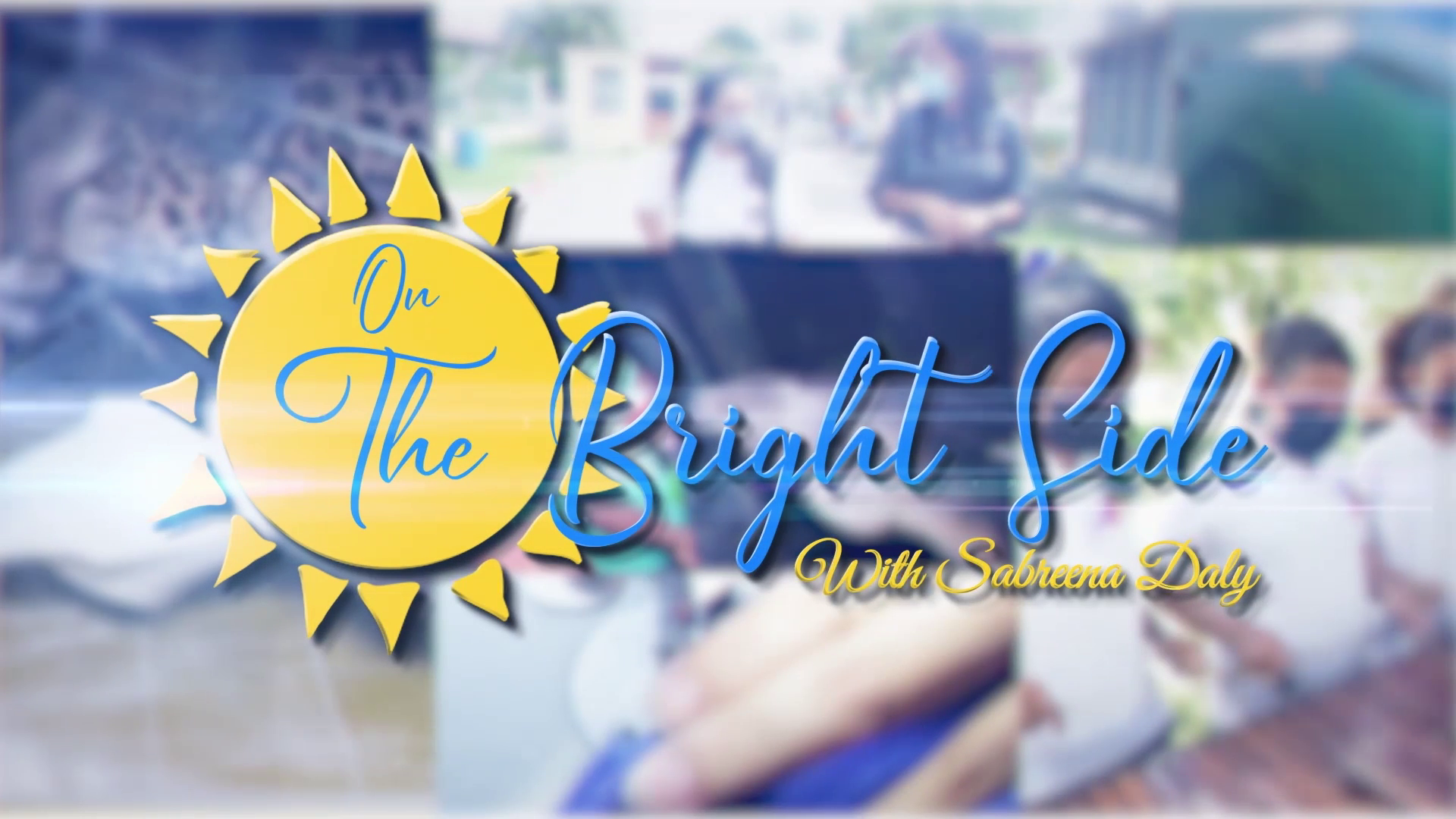This May, News Five is on a mission to uncover something we don’t often talk about, the Bright Side of Grief. And what she’s discovering might just change the way we think about loss. Grief isn’t always about death. Sometimes, it starts with something less visible but just as painful, the loss of love, safety, or a sense of belonging. That’s the kind of grief Sergeant Fredrick Gordon knows all too well. Now the chaplain of the Belize Police Department, Sgt. Gordon’s early life was scarred by trauma and abuse. But his story doesn’t end in darkness. Instead, it’s a powerful testament to healing through faith, resilience, and a deep commitment to serving others. Tonight, Sabreena Daly brings us Gordon’s story — a reminder that even the hardest journeys can lead to the most meaningful destinations. On this week’s episode of The Bright Side, we see how pain can be transformed into purpose.
Healing doesn’t always follow a straight line, and, for Sergeant Fredrick Gordon, it began long before he ever put on a uniform. Now the chaplain of the Belize Police Department, Sgt. Gordon is known for offering comfort and guidance to others. But behind his calm presence is a personal story shaped by grief, not the kind that comes from losing someone, but the kind that comes from never having what you needed in the first place. As a child, Gordon faced instability, abandonment, and a deep yearning to feel loved. That emotional weight followed him into adulthood, sometimes quietly, sometimes painfully. But through it all, it pushed him toward something greater: hope.
Sgt. Fredrick Gordon, Chaplain, Belize Police Department
“Being in an environment where you witness people being stabbed, robbed, shot at; individuals, constantly in and out of jail or on the news. And so I started to ask serious questions about life and that caused me to venture down a path that I would say would be dark. It was full of confusion and complexity. And not having other siblings that I could draw out concerns and so forth, I started to look for love in the wrong places and ended up hurting myself even more than I could have imagined.”
By the time he reached high school, Gordon had already lived through more than most people face in a lifetime. His grief wasn’t just emotional, it was shaped by real, raw experiences: loss, violence, and abuse. Among the most painful chapters was being molested, a trauma that left deep scars and reshaped his sense of self.
“During that earlier stage of trauma, I experienced molestation, I experienced victimization. There was a whole lot of stuff that I was going through and when I reached high school, I started to have individuals from my class and within my school environment who were going through the same thing that I had to try to consolidate, even though I had experienced or was still going through some of the same things.”
Grief therapist Tina Cuellar says that early trauma, especially abuse, often leads to emotional patterns that follow survivors well into adulthood.
Tina Cuellar, Mental Health & Certified Grief Therapist
“Usually when there’s some form of childhood trauma, they felt the loss of abandonment from the parent, or the adults around them didn’t protect them. And they will yearn for that for many years, they will look for that in relationships. But not only look for it, when they feel any sense of it being lost, that major fear of abandonment and loss will start surfacing.”
Sergeant Fredrick Gordon’s story didn’t end with pain, it began there. As he grew older, the weight of his grief didn’t break him. Instead, it became the foundation for something greater. Through faith and a calling to serve, Gordon found purpose, first as a police officer, then as a chaplain. Today, he stands beside those who are hurting, not just as a protector, but as someone who truly understands. The same grief that once left him searching for peace now fuels his mission to help others find it.
“The level of anger and frustration and disappointment and grief in life’s challenges, that life threw out at me, I decided that I’m going to take that and transfer it into positive energy and everything that the enemy intended for evil, I’m going to work it out for my good.”
Tina Cuellar
“When you think of loss and acceptance and grief you want to at some point come to a place where you can honor what happened which means acknowledging it, accepting it but ask yourself what have I learned and how can I take that to help continue help myself and in some cases be able to help others for sure.”
Sgt. Fredrick Gordon
“We’re taking care of everybody else’s needs, but who’s taking care of the officer’s needs? And so that human humanitarian mindset started to pop up back in my head. And as I was studying to be a clergyman at the time, so I decided to make requests to the then commissioner asking if I could be the chaplain for the department to bridge the gap to community transformation and to foster a spiritual alternative within the scope of the department to bring about change.”
“The Bible says sorrow may last for a night, but joy comes in the morning. And the sorrow strengthens your testimony because if everything just happens good, then there is no lesson learned. But when you go through betrayal and heartache and pain and frustration, it puts you at a point where you are strengthened inwardly to affect people outwardly.”
His journey is a powerful reminder that grief can take many forms and that healing is possible, even when the wounds run deep. In serving others, Sgt. Gordon found a path to mend his own heart. This is more than a story of survival. It’s a story of transformation.
